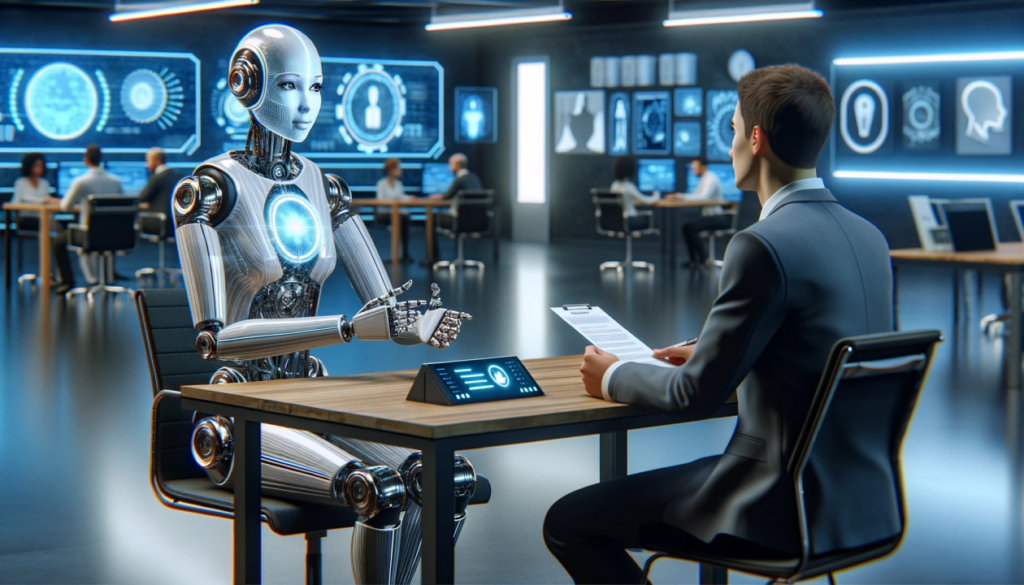Enhancing Talent Acquisition: Empowering Hiring Managers with AI

The landscape of talent acquisition is rapidly evolving, and artificial intelligence (AI) is at the forefront of this transformation. By leveraging AI, hiring managers can streamline recruitment processes, improve candidate quality, and make more data-driven decisions. Here’s how AI can empower hiring managers to boost talent acquisition:
1. Automating Repetitive Tasks
AI can handle time-consuming and repetitive tasks such as resume screening, scheduling interviews, and sending follow-up emails. By automating these tasks, hiring managers can focus on more strategic aspects of recruitment, such as engaging with top candidates and refining the hiring process.
- Resume Screening: AI-powered tools can quickly scan resumes and identify candidates who match the job requirements. This reduces the time spent on manual screening and ensures that only the most qualified candidates move forward.
- Interview Scheduling: AI can automate the coordination of interview times, taking into account the availability of both candidates and interviewers, thus eliminating back-and-forth communications.
2. Enhancing Candidate Sourcing
AI can help identify and attract top talent by analyzing vast amounts of data from various sources, including social media, job boards, and professional networks. This allows hiring managers to tap into a broader talent pool and reach passive candidates who may not be actively seeking new opportunities.
- Social Media Mining: AI algorithms can scan social media profiles to identify potential candidates based on their skills, experiences, and interests.
- Predictive Analytics: By analyzing historical hiring data, AI can predict which sourcing channels are most effective for different types of roles and recommend where to focus recruiting efforts.
3. Improving Candidate Matching
AI-driven tools can match candidates to job openings with a high degree of accuracy. These tools consider not only the skills and experiences listed on resumes but also more nuanced factors such as cultural fit and career aspirations.
- Skills Matching: AI can evaluate a candidate’s skills against the job requirements, highlighting those who are the best fit.
- Cultural Fit Assessment: AI tools can analyze a candidate’s behavior and communication style to assess their fit within the company culture.
4. Data-Driven Decision Making
AI provides hiring managers with actionable insights derived from data analytics. This empowers them to make more informed decisions throughout the recruitment process.
- Candidate Analytics: AI can track metrics such as time-to-hire, cost-per-hire, and source effectiveness, helping hiring managers identify areas for improvement.
- Bias Reduction: AI algorithms can help reduce unconscious bias by focusing on objective data rather than subjective criteria, promoting a more diverse and inclusive hiring process.
5. Enhancing Candidate Experience
AI can significantly improve the candidate experience by providing timely updates, personalized communication, and streamlined application processes.
- Chatbots: AI-powered chatbots can answer candidate queries in real-time, providing a positive and engaging experience.
- Personalized Communication: AI can tailor communication based on a candidate’s preferences and status in the recruitment process, ensuring they feel valued and informed.
6. Continuous Learning and Adaptation
AI systems can learn from each recruitment cycle, continuously improving their algorithms and recommendations. This adaptive learning capability ensures that the recruitment process becomes more efficient and effective over time.
- Feedback Loop: AI can analyze feedback from hiring managers and candidates to refine its processes and improve future outcomes.
- Adaptive Algorithms: Machine learning models can update themselves based on new data, staying current with changing job market trends and candidate behaviors.
AI is revolutionizing talent acquisition by automating routine tasks, enhancing candidate sourcing, improving matching accuracy, enabling data-driven decisions, and enhancing the candidate experience. By embracing AI, hiring managers can not only streamline their recruitment processes but also attract and retain top talent more effectively. The integration of AI in talent acquisition is not just a technological advancement; it is a strategic imperative for organizations aiming to stay competitive in today’s dynamic job market.